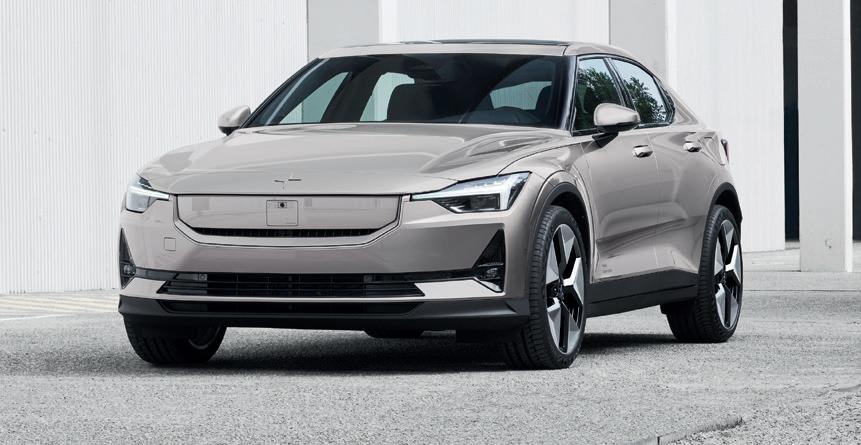Electric Car Pioneer Polestar Withdraws from Australian Lobby Group Over Climate Inaction
In a bold and unprecedented move, Polestar, a leading electric vehicle (EV) manufacturer, has withdrawn from the Federal Chamber of Automotive Industries (FCAI), Australia's peak industry body representing car manufacturers. This decision stems from Polestar's dissatisfaction with the FCAI's stance on vehicle efficiency standards, which Polestar believes are essential to combat climate change.

Polestar's withdrawal from the FCAI underscores its commitment to addressing climate change through its business practices. The company's decision was announced by its CEO, Thomas Ingenlath, who criticized the FCAI for lobbying against stronger vehicle efficiency standards in Australia.

Ingenlath stated that "the FCAI has consistently opposed efforts to improve vehicle efficiency in Australia, putting the interests of its members above the needs of our planet." He emphasized that Polestar was "deeply concerned about the future of our environment" and urged the FCAI to adopt a more progressive stance on climate action.
Australia's Lagging Vehicle Efficiency Standards
Australia lags behind many developed countries in terms of vehicle efficiency standards. The current standard, known as ADR 79/04, is based on outdated European regulations from 2009. These standards have not been updated since 2016, resulting in Australia having some of the lowest vehicle efficiency standards among OECD countries.
Polestar contends that stronger vehicle efficiency standards are essential to reduce greenhouse gas emissions from the transportation sector. Transportation accounts for around 20% of Australia's carbon emissions, and light vehicles are a major contributor. By improving vehicle efficiency, the country can make significant progress towards meeting its climate goals.

FCAI's Position on Vehicle Efficiency Standards
The FCAI has consistently opposed efforts to strengthen vehicle efficiency standards in Australia. The organization argues that such standards would increase vehicle prices and stifle consumer choice. It also claims that the benefits of reduced fuel consumption would be outweighed by the costs of implementing new standards.
However, studies have shown that vehicle efficiency standards can provide significant benefits, including reduced fuel costs, improved air quality, and reduced greenhouse gas emissions. Moreover, modern vehicle technologies have made it possible to improve vehicle efficiency without compromising on safety or performance.
Polestar's Independence and Environmental Commitment
By withdrawing from the FCAI, Polestar has demonstrated its willingness to take a stand for climate action, even if it means going against the industry norm. The company's decision has been widely praised by environmental groups and other stakeholders who are calling for stronger action on climate change.
Polestar's withdrawal is also a reflection of the growing consumer demand for sustainable products and services. As consumers become more aware of the environmental impact of their choices, they are increasingly seeking out companies that prioritize sustainability.

Potential Impact of Polestar's Decision
Polestar's withdrawal from the FCAI could have a significant impact on the Australian automotive sector. It sends a clear message to the industry that climate action is a non-negotiable priority. Other car manufacturers may be forced to reconsider their own positions on vehicle efficiency standards in light of Polestar's move.
Moreover, Polestar's decision could bolster support for stronger vehicle efficiency standards among the public and government policymakers. It demonstrates that the automotive industry is not universally opposed to climate action, and that consumers are demanding more from the companies they support.
Polestar's withdrawal from the FCAI is a landmark moment in the fight against climate change. It sends a powerful message that businesses can and should play a role in addressing this global crisis. The company's decision has the potential to drive positive change in the automotive industry and beyond, and it is a reminder that even small actions can make a big difference.
As the world grapples with the urgent challenge of climate change, it is imperative that all stakeholders, including businesses, governments, and consumers, work together to find solutions. Polestar's bold move is a step in the right direction, and it should inspire others to follow suit.
